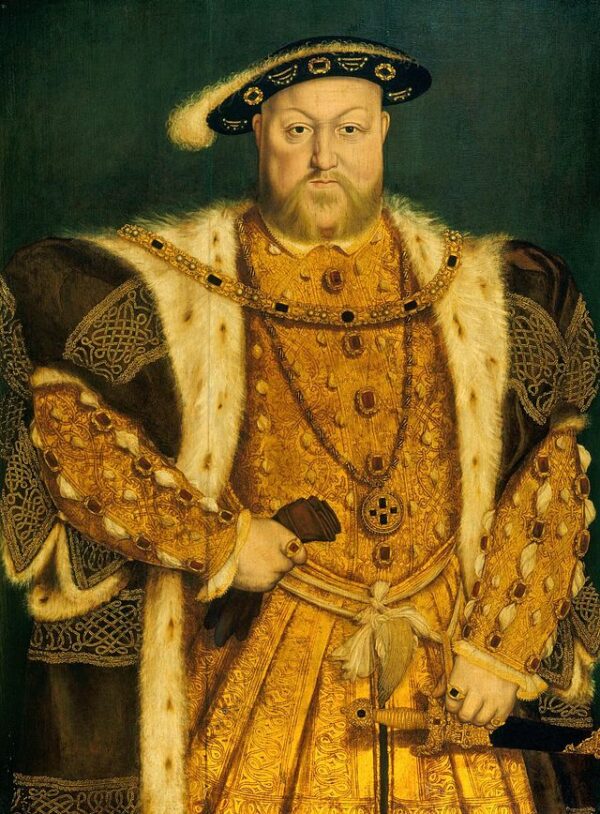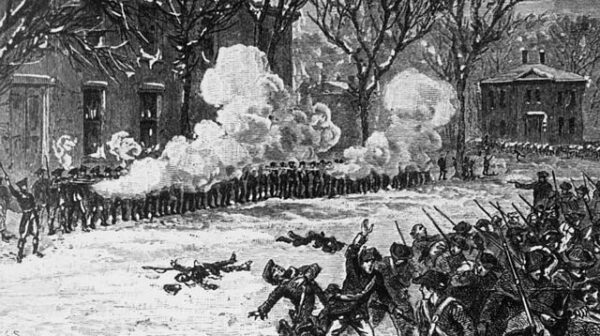On August 31, 1538, Pope Paul III issued the papal bull Eius qui immobilis, formally excommunicating King Henry VIII of England. This act marked a critical juncture in the escalating conflict between the English monarchy and the Roman Catholic Church, signifying the profound and irreparable rift that had developed between England and the papacy.
The roots of this conflict lay in Henry VIII’s desperate quest for a male heir, a pursuit that began in the early 1530s. Henry, whose marriage to Catherine of Aragon had produced only a daughter, sought to annul the union in the hope of marrying Anne Boleyn, with whom he anticipated bearing a son. However, Pope Clement VII, under considerable political pressure from Catherine’s nephew, Charles V, the Holy Roman Emperor, denied Henry’s request for a divorce. This papal refusal was not just a matter of personal disappointment for Henry but posed a significant threat to the stability of the Tudor dynasty. Confronted with the Pope’s obstinacy and the potential crisis of succession, Henry decided to sever England’s ties with Rome, leading to the English Reformation.
In 1534, Henry VIII asserted his supremacy over the Church in England through the Act of Supremacy, which declared him the Supreme Head of the Church of England. This act effectively dissolved the authority of the Pope within England, establishing a national church under the control of the monarchy. Henry’s religious reforms, including the dissolution of monasteries and the redistribution of church wealth, were deeply unpopular with many of his subjects and ignited a series of uprisings. Nevertheless, Henry remained resolute in his determination to consolidate his power and ensure the continuity of his dynasty.
Pope Paul III, who assumed the papacy in 1534, inherited this volatile situation from his predecessor. Over the ensuing years, the relationship between England and the Papacy deteriorated further, exacerbated by Henry’s increasingly aggressive measures against those who remained loyal to Rome. By the time Paul III issued the bull Eius qui immobilis, the breach between England and the Catholic Church had become irreparable.
The bull of excommunication was not merely a religious decree; it was a potent political instrument designed to delegitimize Henry’s rule and galvanize opposition to him across Catholic Europe. In the bull, Henry was condemned for his heresy and schism, particularly for his usurpation of ecclesiastical authority. The document reaffirmed the Pope’s spiritual supremacy and sought to isolate Henry both spiritually and politically. It was a clarion call to Catholic rulers to consider military or diplomatic action against England, although no immediate interventions followed.
For Henry VIII, the excommunication held both symbolic and practical significance. While it underscored his estrangement from the broader Christian community, by 1538, Henry had already established a robust national church and secured the allegiance of much of his realm. The excommunication did little to shake his authority within England, where he continued to enjoy considerable support among those who benefited from the redistribution of church lands and wealth.
Internationally, the excommunication heightened the religious and political tensions that were already straining Europe. It solidified the division between Catholic and Protestant states, contributing to the broader conflicts of the Reformation. While it did not result in immediate military action against England, it reinforced Henry’s position as a key figure in the emerging Protestant world and a target of Catholic enmity.
Pope Paul III’s excommunication of Henry VIII was thus a pivotal moment in the history of the Reformation, one that had profound consequences for the religious and political landscape of Europe. The issuance of Eius qui immobilis symbolized the final rupture between England and the Roman Catholic Church, a division that would shape the future of both the English nation and the broader Christian world. Henry’s defiance of papal authority and his establishment of the Church of England not only ensured the survival of his dynasty but also contributed to the broader transformation of European society during the Reformation.






